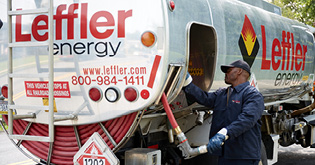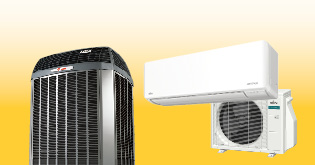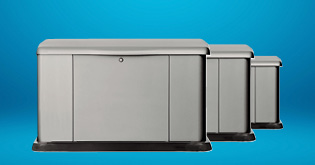- My Account:
- Sign In
- Register
- Make A Payment

Choosing the right backup generator for your home.

Whether you lose power from a major storm or a simple downed wire and are fumbling around in the dark looking for candles, that's when you ask yourself "Why don't I have a backup generator?" But what if that outage lasted longer than a few hours? Maybe days? It can happen, which is why having a generator isn't a nice-to-have but a must-have item for your home. A backup generator will help you make it through any outage comfortably and safely, prevent home damage by keeping crucial systems running, may save you money, and ensure that life goes on as normal when the power goes off.
What type of generator is right for you and your home?
First you need to consider the following before making any decision about what generator you need:
- Your geographical location
- The size of your home
- Number and type of appliances and equipment that you require power backup
There are two generator options available for backup power: the standby (or whole house generator) and the portable generator. Both provide power backup but with some important differences that you need to know.
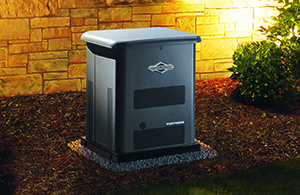
Standby and portable generators - What's the difference?
- Standby generators - A standby generator is permanently installed outside your home, and usually runs on propane or natural gas. If power goes out, the generator turns on automatically, supplying power to your home again in moments. Standby generators can be expensive but many homeowners living in hurricane or flood-prone areas, find that they are a smart investment.
- Portable generators - These usually run on gasoline or diesel, though natural gas and propane models are available. Because of their mobility and lower cost, these generators are ideal if you require only limited and occasional backup power. But there are a few safety issues that you need to be aware of, which we'll share later in this article.
Standby and portable generators - The facts you need to know.
Standby generator installation.
This should be handled professionally as it involves permits, building codes, and professional electrical, plumbing, and potentially gas line work if your power source is natural gas.
Standby generator benefits.
Can power essential items such as your refrigerator, cooking appliances, furnace, entertainment, and medical devices, and necessary business equipment. This prevents having to throw out hundreds of dollars in spoiled food in a prolonged outage. It can also help prevent frozen pipes from bursting and keep sump pumps running, avoiding potentially thousands of dollars in damage.
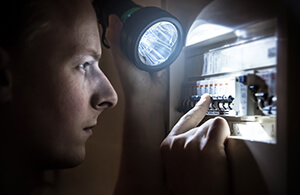
Portable generators - how they work.
This generator is a good, backup solution for people that only lose power on rare occasions.
It can run on gasoline, diesel, natural gas, or propane and can be used to supply power safely to a select number of items in your home. It should not be used without having a properly installed generator transfer switch.
Portable generator benefits.
Portable generators cost substantially less than a standby generator and because of their size, can be easily moved to wherever you need them, at home, camping, etc.
Portable generator safety.
Never plug your generator directly into the wall outlet (known as back-feeding). This sends power beyond the house, which could kill or injure utility workers and others served by the same utility transformer. Portable generators must be kept outside in a dry area, never inside the home or any enclosed or partially-enclosed spaces such as your basement, garage, or crawl space because of the carbon monoxide (CO) emitted while the generator is running, electrocution and fire risks.
Now that you know what types of generators are available, talk with a professional to help you decide whether a standby or portable one is right for you.

